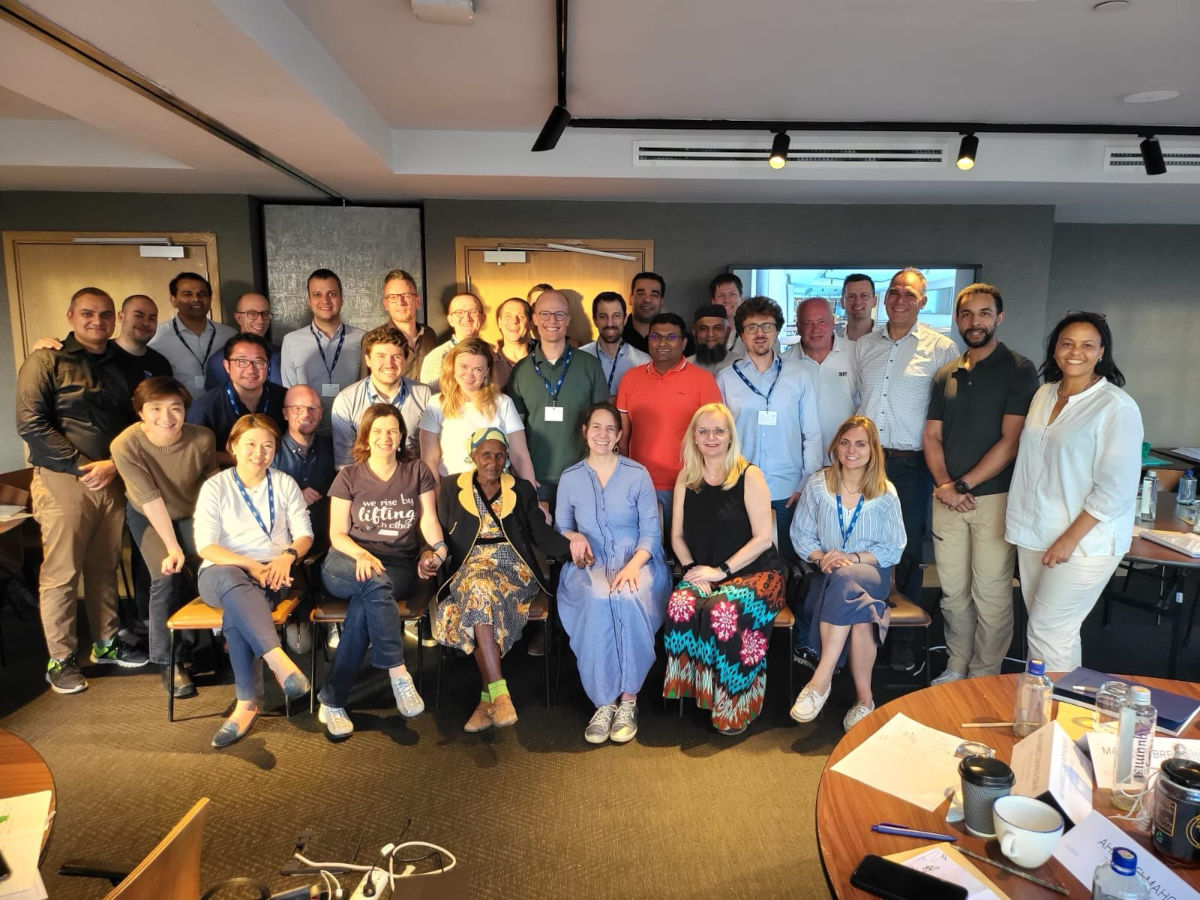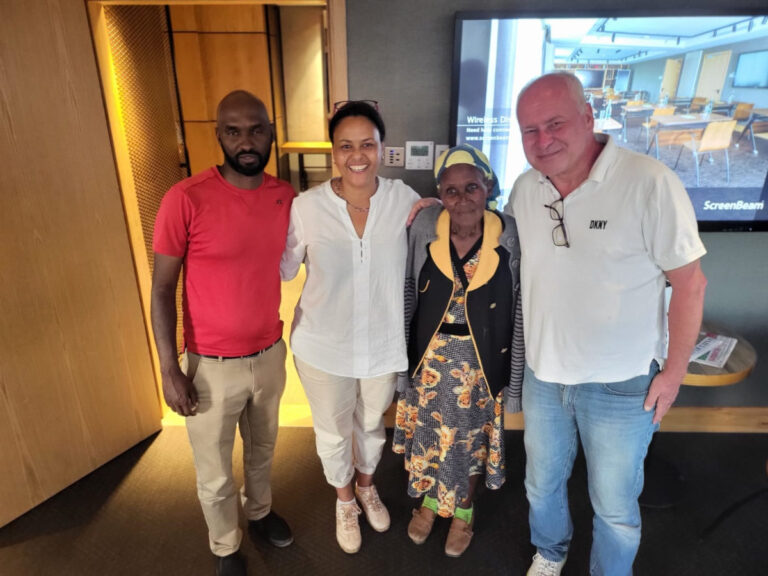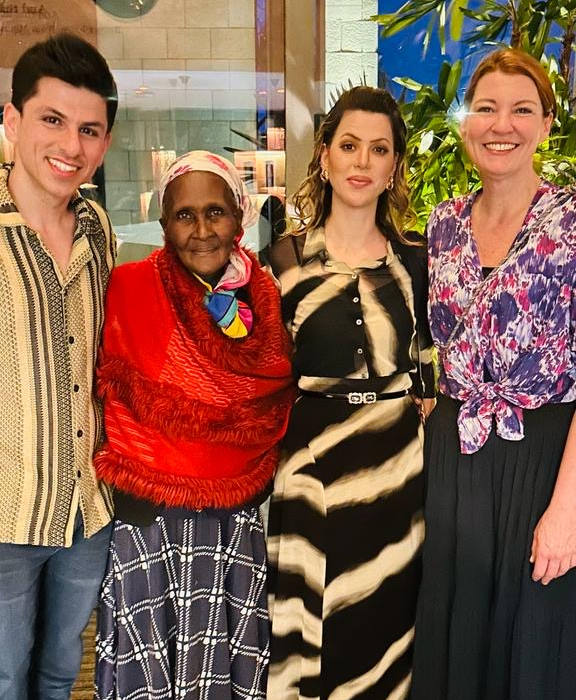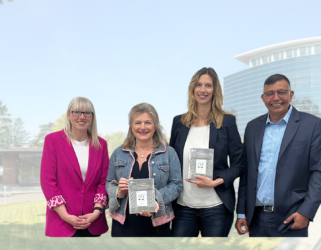
Many leaders from every kind of industry and all walks of life have graced IMD leadership forums and seminars over the years, but few, if any, have overcome the struggles Janet Bett faced when she found herself homeless on the streets of Nairobi as a mother trying to care for six young children.
A member of the Kipsigis people and born in 1958 on the outskirts of Kericho, a town in the Kenyan Rift Valley, Janet grew up speaking three languages — Kipsikii, Swahili, and English — and, unusually for a girl from the western highlands of Kenya in those days, she attained basic teacher-training qualifications and briefly taught English in the local school before getting married and having children.
Unfortunately, her husband proved to be controlling and abusive, so Janet left her village for the capital city, Nairobi — seven hours away by bus — where she found shelter with an aunt (who had also fled a highly abusive marriage) in the hope of finding casual work. Sadly, her aunt died a few months later, and unable to find work, Janet found herself out on the street, fending for herself and her six children. She was homeless for three years, barely surviving, and although she found some sense of community with other mothers who were obliged to beg in order to support their children, she clearly felt very alone. She says, without a trace of self-pity, “At the end of the day, it was just me, Janet — but I survived.”
Things changed for the better when she met Ingrid Munro, a Swedish national who had come to Kenya on a UN assignment and who, with her husband Bob, had adopted three young brothers who had been living on the streets of Nairobi. After adopting the boys, their friends’ mothers sought out Ingrid — known to all and sundry as “Mama” — for help.
Aware of the impact of Grameen Bank, a community development bank founded in Bangladesh in 1976 that made small loans to the impoverished without requiring collateral, Ingrid decided to start a microfinance scheme along the same lines and, in 2010, founded Jamii Bora Trust (Jamii Bora is Swahili for “good families”), beginning with 50 women beggars and loaning them twice as much money as they agreed to save.
With the other women having little to no education, Janet’s language and literacy skills came to the fore as she acted as translator and helped Ingrid administer the trust’s affairs. Intended as “a small club of street beggars,” with Janet’s help, Jamii Bora grew, she says, “like a bushfire,” numbering over 170,000 poor female members in September 2007 and peaking at more than 300,000 members.

Innovation at the bottom of the pyramid
The real innovation at Jamii Bora was the trust’s social programs, which Janet managed and which she describes as “unique.” For example, noticing that when someone defaulted on a loan, it was almost always because a family member was sick, and the money was diverted to pay for medical expenses, Janet and her colleagues started an in-house insurance company. Lacking access to the formal banking system and unable to afford health insurance, the borrowers could get coverage for themselves and their families through Jamii Bora for a small monthly fee. Janet also helped set up a social housing program whereby women could get a 20-year mortgage at an affordable rate, an informal “business school” to help entrepreneurs — generally small traders — get access to funding, and a dedicated program to try to help the most vulnerable women members; a role in which she effectively acted as a social worker and counselor.
Janet grew personally and professionally at Jamii Bora. She soon became one of the trust’s key leaders, responsible for a team of 20 women, and went on to educate all her children — now nine in number — through trust education loans.
Along the way, she became an expert in microfinance at the bottom of the pyramid — she even met Muhammad Yunus, the legendary founder of Grameen Bank, at a microcredit summit in Kenya in 2007 — and still regularly gives talks to groups at Jamii Bora on the subject.
It was while she was at Jamii Bora that IMD first came across Janet’s work when a group of EMBA students went to Nairobi on a Discovery Expedition led by Professor of Financial Management Leif Sjöblom. There, they worked with local entrepreneurs to learn about social innovation, sustainable development, and bottom-of-the-pyramid business models in emerging markets.
Dinesh Taneja, who was on the expedition as part of his EMBA, graduating in January 2019, said, “This expedition, in particular, gave us an opportunity to interact and learn from many successful female leaders. We already had many successful women leaders in our cohort who had proved themselves in various fields, including entrepreneurship [and] we met many woman leaders in Kenya, including Janet Bett […] Those couple of hours of interaction with her continue to inspire most of us.”
Despite the social and cultural differences that the EMBA group observed in entrepreneurship at the bottom of the pyramid, they came away with one key insight, according to Dinesh: “The good news is that it’s not very different to do business in Africa than any other country. As long as the businesses have the patience and persistence to understand the customer requirement and adapt their offering to suit the local taste, the chances of success are there.”

Two-way learning process
Following the Discovery Expedition, Janet was invited to do an IMD Strategies for Leadership program in 2012, an experience she describes as “eye-opening.” She remembers, “I learned a lot because I was with diverse women from many different countries, many different companies, and many different backgrounds [who had] different experiences in business, including some who were CEOs and top leaders.
“I learned that education is so important to be able to succeed in business, and that everybody needs training at some point — even CEOs of companies. Whatever you do, at some point, you will need training, and you should value it.”
It was a lesson that has clearly stuck with her. On returning to Kenya, she would try to convince people about the key role of education in business: “It doesn’t matter if you are old or young — always keep learning and keep updating your knowledge [regarding] the new trends and new ideas and new products that are coming in. For me, IMD was really an eye-opener. I learned that everything is new all the time.”
Reflecting on her extraordinary life, Janet says she has seen great change in attitudes toward women leaders, not least among traditionally male-dominated organizations in Kenya: “Some communities don’t value women, but they can still become managers, leaders, and entrepreneurs. I’ve really learned that God created everybody with a talent. Sometimes, women don’t understand that we have talent in us, but today, we can do everything. Even In Kenya, women are government ministers and leaders of big organizations. I always tell women that they can do it all, and they do, perhaps even more than men — they raise and educate children, and they [have careers].
“And I’ve learned that women should explore more in the workplace. Women can do it all — not even the sky’s the limit!”
This is the fourth of a series of stories celebrating the 20th anniversary of our Strategies for Leadership (SL) program.





